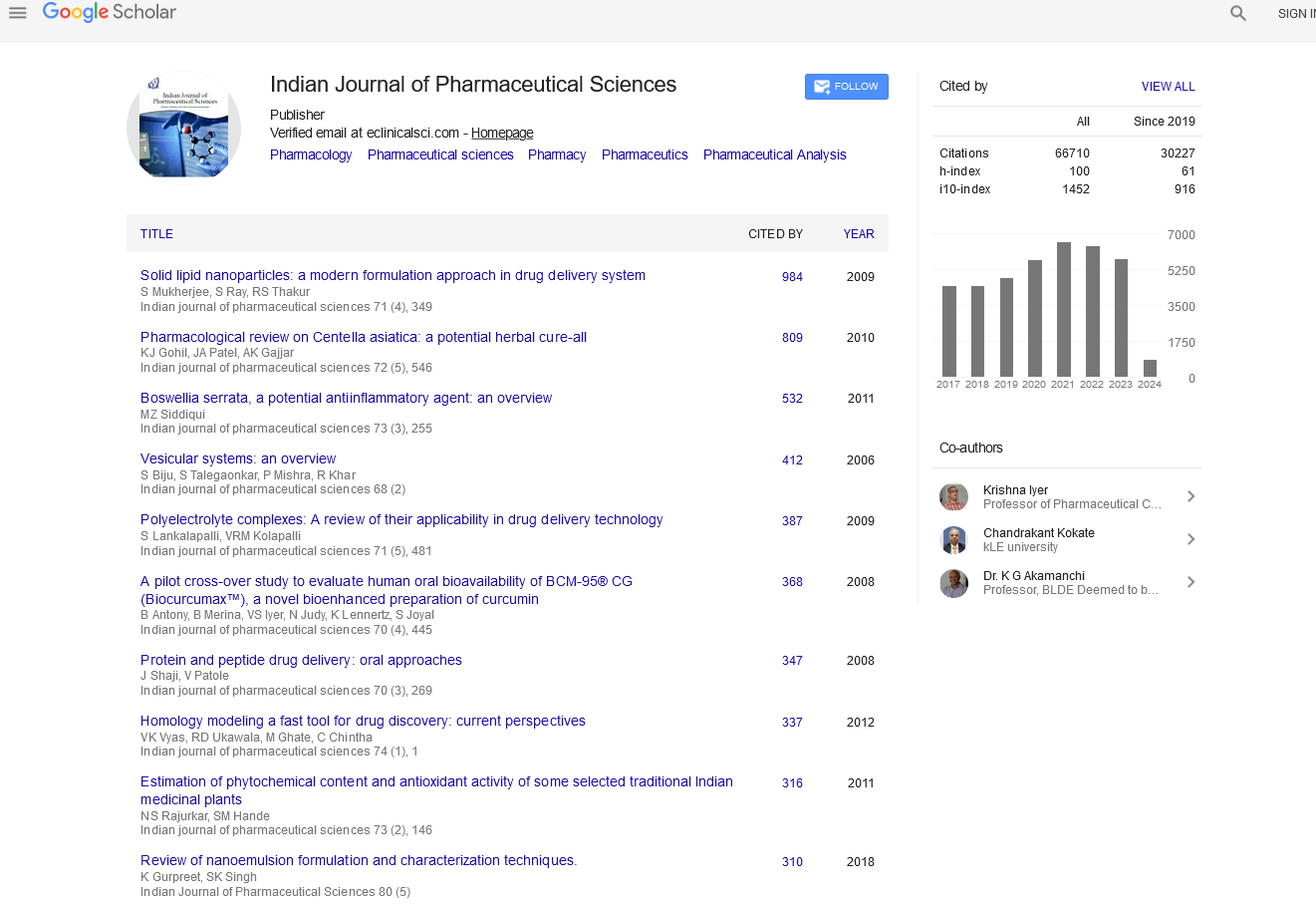Abstract
Evaluation of Antioxidant, Hypoglycemic and Hypolipidemic Effects of the Phytoconstituents of Cinnamomum tamala in Rats
Department of Molecular Biology and Genetic Engineering, College of Basic sciences and Humanities, Department of Pharmacology & Toxicology, College of Veterinary Science, G. B. Pant University of Agriculture & Technology, Pantnagar-263 145, India
Correspondence Address:
Department of Molecular Biology and Genetic Engineering, College of Basic sciences and Humanities, India, E-mail: ak_gupta2k@rediffmail.com
In the present study, the antidiabetic properties of Cinnamomum tamala were investigated. The ethanol extract of the leaf of C. tamala was used for investigating its effect against diabetes using a rat model. Different doses of the ethanol extract of C. tamala was administered orally to alloxan-induced diabetic rats for 15 d and the effect of treatment on blood glucose level, glycosylated haemoglobin and peroxidation products such as thiobarbituric acid reactive substances and serum lipids were monitored. Gas chromatography-mass spectroscopy and high performance liquid chromatography techniques were used for identification and quantification of the active principles of the ethanol extract responsible for exerting antioxidant and antidiabetic effects. Oral administration of the ethanol extract of C. tamala resulted in significant decrease in the blood glucose levels, glycosylated haemoglobin, thiobarbituric acid reactive substances and serum lipids in diabetic rats under investigation. It was also observed that the oral administration of ethanol extract of C. tamala significantly decreased the levels of reduced glutathione and superoxide dismutase in the hepatic and renal tissues of alloxan-induced diabetic rats. These results provided evidence for the antidiabetic, antioxidant and antihyperlipidemic effects of the ethanol extract of C. tamala when administered orally. On the basis of these findings it can be concluded that extracts of C. tamala should be investigated further for predicting their clinical potential as a phytomedicine for treating diabetes mellitus.





